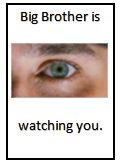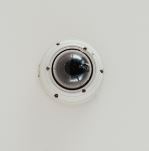When the shooting occurred at Columbine High School on April 20, 1999, I was a second-year teacher at Lamar High School in Colorado. I wrote the following story at a writing conference I attended that summer. I wanted to post it the week of the shooting at Marjory Stoneman Douglas High School, but couldn’t find it. I finally tracked it down. I added the quote by President Trump to go with the original quote from the Time article I found when I first wrote the story.

“If you had a teacher who was adept with the firearm, they could end the attack very quickly.”
-President Trump after Marjory Stoneman Douglas High School shooting, February, 21, 2018
“How different do you think the outcome would’ve been on the 20th of April if the teachers were armed? I think teachers should be encouraged to have guns.”
-gun advocate, Time, May 24, 1999 after the Columbine High School shooting
Sweat trickled down her cheek as she scanned the parking lot from the observation tower. She spoke into the mouthpiece of her walkie-talkie.
“South lot–situation normal.”
She listened for anything out of the ordinary as the other monitors checked in.
“North lot–normal.”
“Gymnasium–normal.”
“Commons–normal.”
Resting her assault rifle against her forearm, she continued watching the kids milling around in the parking lot, getting ready to head back to class. She remembered her high school parking lot at the end of lunch. Cars would careen haphazardly through the lot as everyone struggled to get the best spots and get to class on time.
Today, the cars entered in an orderly queue as the students slowed at the gate to flash their I.D.’s. The students drove carefully into the lot, parked their cars, and proceeded to the security check-in.
From the observation tower, it was difficult to pick out the kids she knew. All the kids wore the same uniform: white shirt, navy blue pants, and a matching tie. Their hairstyles were as standard as the uniforms: the boys’ hair above the ear; the girls’ hair, if it was long enough, pulled back into a pony tail.
The intercom buzzed. She checked the security monitor. Frank, who was reporting for duty, held up his I.D. badge although she could clearly see who he was. She pushed the button to unlock the security door. His footsteps clanged against the metal steps. At the top of the stairs, he paused.
“Cheryl, you forgot to get vocal verification.”
Cheryl was thinking about her next class as she emptied the chamber of the assault rifle and offered the weapon to Frank. She wanted to have a class discussion about 1984 and she was trying to figure out how to have a more meaningful discussion without digressing from the District Lesson Plan.
“What? Oh, I could see it was you.”
“Cheryl, you know that’s not enough. Some kid out of camera range could have been holding a gun on me. You would have let him walk right in here.”
Through gritted teeth, she replied, “Who in their right mind would attack you?”
“True,” he said and patted his Sig-Sauer 9 mm pistol with bullets that could penetrate a steel door. “But watch it or I’ll report you.”
After signing out, she pounded down the stairs and out into the courtyard. She was sick of Frank and his commando attitude. They were teachers, not commandos. Sliding her badge through the electronic lock, she unlocked the security door into the faculty locker room. She had only a few minutes to freshen up. Stowing her helmet and flak jacket in her locker, she went to the sinks to wash her face and hands. Above the mirror over the sinks was the motto, ‘Remember, forgive, learn.” A blue columbine set off the quote on either side.
Remember, forgive, learn
No one was allowed to forget the Columbine shooting. They all remembered, and the kids were told about it, but had they forgiven? Had they learned?
She have a hasty touch up to her hair as she headed to her classroom. Students who had just made it through security were grabbing their books. They were quiet and subdued. No one joked or roughhoused as they hurried to lass. The lack of laughter was deafening. Security cameras scanned the crowded hallway.
 The students in her classroom hushed as she entered. She wondered if their respect were for her or the small Smith and Wesson strapped to her side. Without a word, her students took out 1984 and began reading. As she took roll, the video camera mounted in the corner above the blackboard scanned her classroom. Carefully, she marked the attendance and noted any deviations from the dress code. Her eyes immediately focused on Josh. As the headboy, he was usually above suspicion but, lately, he aroused her concern. One day, he wore a dark purple tie instead of the required navy. She assumed no one else had noticed because he had made it halfway through the day and was still in class. Another day he had doodled, ‘Nonconformity is the rule,’ all over his official school book cover. Again, no one seemed to notice.
The students in her classroom hushed as she entered. She wondered if their respect were for her or the small Smith and Wesson strapped to her side. Without a word, her students took out 1984 and began reading. As she took roll, the video camera mounted in the corner above the blackboard scanned her classroom. Carefully, she marked the attendance and noted any deviations from the dress code. Her eyes immediately focused on Josh. As the headboy, he was usually above suspicion but, lately, he aroused her concern. One day, he wore a dark purple tie instead of the required navy. She assumed no one else had noticed because he had made it halfway through the day and was still in class. Another day he had doodled, ‘Nonconformity is the rule,’ all over his official school book cover. Again, no one seemed to notice.
She was supposed to report any deviation from school rules or any behavior that might point to emotional disturbance but he was the epitome of excellence in everything he did. Besides, she sympathized with him. She, too, tired of wearing a uniform every day and following the standard district lesson plans.
Today, however, Cheryl knew she had to report him. Josh was wearing an earring. Jewelry was strictly forbidden, but, beyond that, his earring was an upside-down A with a circle around it–the symbol for anarchy. She noted his transgression on the discipline form and slid it and the attendance form into the folder taped outside her door.
With a sigh, she turned to her lesson plan for the day and the list of carefully scripted questions entitled, ‘Thought Questions for Meaningful Discussion.’ She ran through the list with her students and received their formulaic responses in return. The students answered promptly when she called on them, but with no excitement or enthusiasm. She remembered discussing 1984 in her twelfth-grade class. Her teacher had taught the book in conjunction with the movie, Wag the Dog, and they’d all become fascinated with the power of the press to shape their perceptions of the world. She despaired of ever creating that same excitement in her own classroom.
She came to the next thought question: ‘Who is Big Brother?’ Glancing at the camera, she took a deep breath. She couldn’t bring herself to ask it. Instead, she asked, “How does our school resemble Winston’s society?”
Josh looked up from his doodling.
“What?” he asked.
“How does our school resemble Winston’s society?” she repeated.
 Josh glanced at the camera that was now motionless except for the pulsing red power light.
Josh glanced at the camera that was now motionless except for the pulsing red power light.
“What do you think?” he countered.
“I want to know what you think.”
I think whatever you want me to think, ” he replied and stared pointedly at her handgun. Involuntarily, her hand rose to rest on the grip.
“What do you mean?” she asked quietly. She knew very well what he meant, but she wanted him to say it.
“Your questions.”
“What?” She hadn’t expected him to talk about her questions.
“You don’t ask questions about what we think. You only care about what we know. You’re afraid of what might happen if you let us think.”
He paused for breath. His cheeks flushed and his blue eyes sparkled.
“Why?” she prompted him.
“Because you’re afraid we’ll find out that just because you have a gun doesn’t mean you can make us listen.”
Or learn, she wanted to add.
The crackle of a walkie-talkie at the door startled everyone. Officer Hale, one of the school security guards, stood quietly as he listened. Josh slumped in his seat. Hale eyed Chery as if to ask her why she had let this continue.
“Okay, son, you’re finished.”
Josh did not argue but grabbed his books and hurried past the officer. After scanning the rest of Cheryl’s cringing students and sending her one last scathing look, Hale followed Josh out into the hall.
“Class, continue reading, please.”
White-knuckled hands gripped books as the students stared diligently at the words in front of them. For the rest of the day, Cheryl attempted no more discussion. She watched her students and idly traced the grip of her weapon with the tips of her fingers. When she had first received the weapon, it had represented security, her ability to protect her students, but now it was a barrier that hindered her ability to help them learn and grow.
After school, she was called to the office and received a reprimand. She was also questioned about Josh’s behavior over the past few days. His parents were sending him to an adolescent treatment center, and they needed information about his behavior. She told the principal everything she knew like a dutiful teacher should, but, inside, she felt like Winston when he betrayed his lover, Julia, to Big Brother. That night, she left her gun in her locker instead of taking it home like she was required.
The next day, Josh’s seat was empty. The students waited expectantly for her to begin the discussion. She looked at her list of thought questions, then at her students, and back at her list. Slowly, she crumpled the list and threw it into the trashcan on the floor underneath the video camera. Her students’ eyes were riveted on her. Then, she made her way deliberately to her desk. The leather of her belt creaked as she unhooked it and laid it across the desk. Carefully, she removed her Smith and Wesson from its holster, checked to make sure the chamber was empty and dropped the bullet cartridge out of the weapon into the palm of her hand. Her students fidgeted but still followed her every move.
Once she was sure the weapon was safe, she placed it and the bullets in the bottom of her desk. She removed her keys from her belt and locked the drawer. She rattled the drawer to make sure it was locked, removed the key from her key ring, and walked to the open window closest to her desk. With all her might, she hurled the key into the grassy field outside of the window.
Loosening her collar and removing her tie, she turned back to her stunned students and glanced at Josh’s empty seat.
“Let’s begin. Who can tell me how our school is like the society in 1984?”